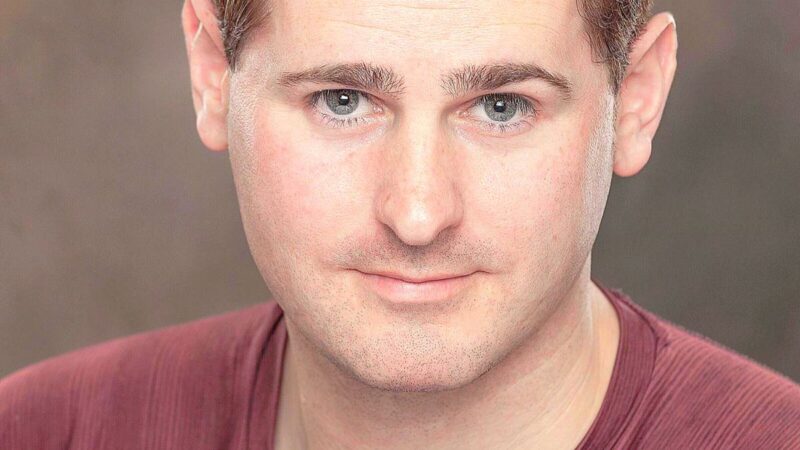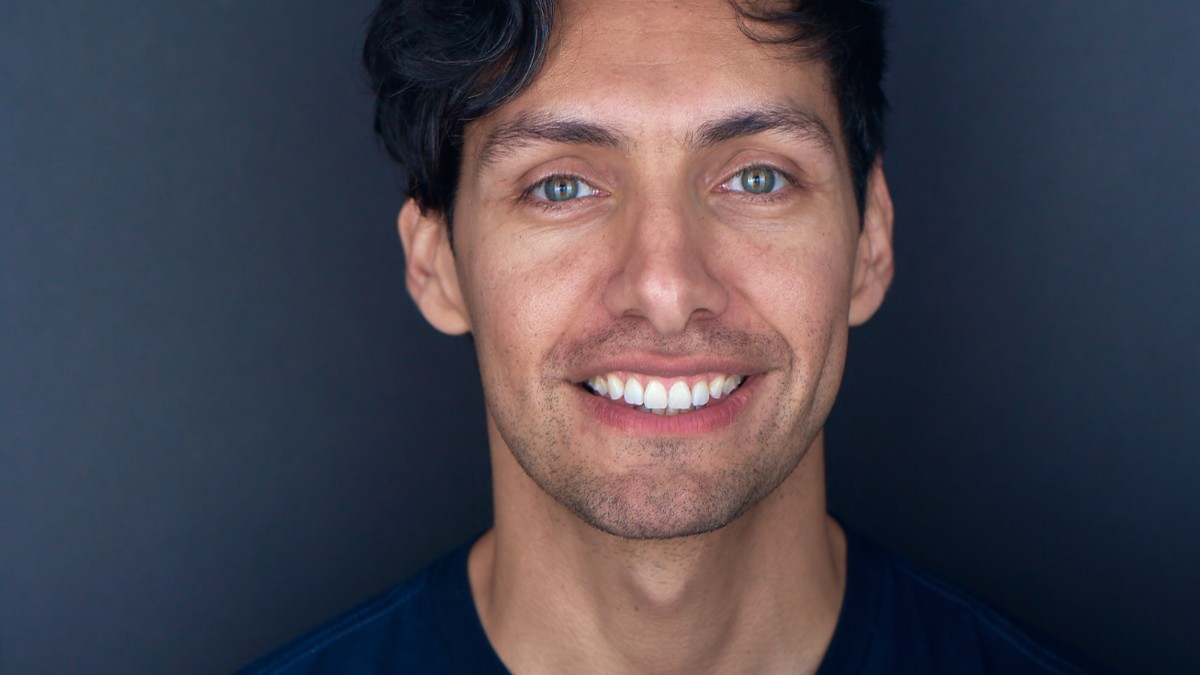
An Industry Case Study
Narrative | Dramatic Features
Film Name: ONCE
Genre: Slice of life Drama
Length of film: in word(s) / number(s)
Director: Jeff Torres
Producer: Jeff Torres
Writer: Jeff Torres
Cinematographer: Jeff Torres
Production Company: Become the Wind Productions
Budget: $0
Financing: Private
Shooting Format: DSLR 16:9 1080p, 24fps
Screening Format: HD 1080p
The Official Poster for Once
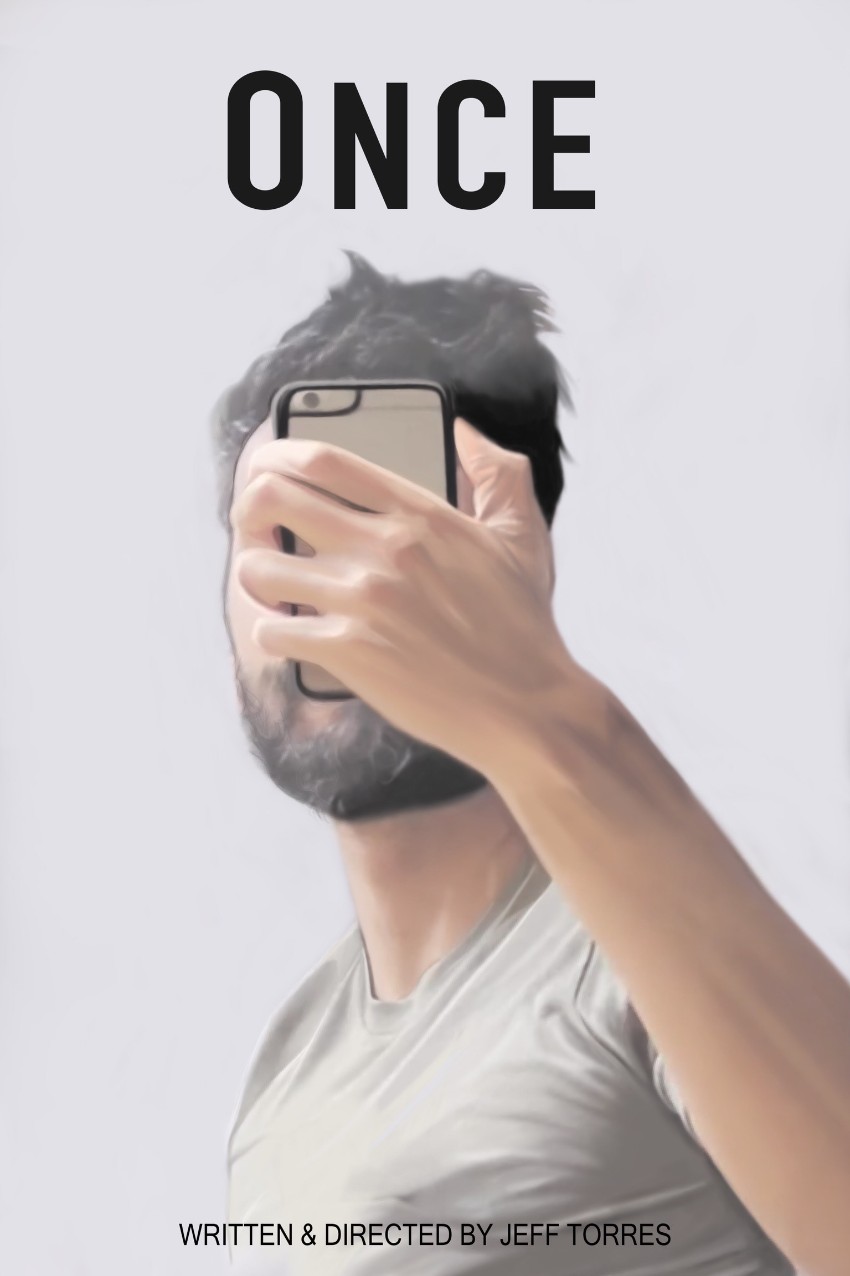
A Short Biography of Jeff Torres
Jeff Torres was born on January 6, 1985 in California, USA. He is an actor and director, known for Night Sky (2022), Criminal Minds: Beyond Borders (2016) and S.W.A.T. (2017). In ONCE, Jeff is trapped. Whether it’s traffic, work, April 2020, or his phone, he’s learning his environment might not be what’s holding him back. Once is a slice of life dramedy that serves as a love letter to everyone who wants to do big things in the world, but has no idea where to start.
The Jeff Torres Interview
indieactivity: Tell us about “who you are“?
Jeff Torres (JT): I’m Jeff Torres, a Southern California native that studied theatre at UC, Riverside and has wanted to act since childhood. In the last few years that passion has grown and has begun to include writing and directing as well. I’m into fitness, love Costco, and believe that art can change the world.
Introduce your film?
Jeff Torres (JT): ONCE is about the idea that with enough time on our hands we’ll be able to do all the things we’ve been putting off. It touches on mental health and the way in which we all to some degree postpone life until we have the things we think we need in order to enjoy it. It’s an uplifting slice of life dramedy. Stylistically I was limited to tripod shots, but the limitations played into the themes of lack of mobility, lack of motivation, and a general sense of being trapped.
Tell us why you chose to write, produce, direct, shoot, cut/edit the movie? Was it financial, chance or no-budget reason?
Jeff Torres (JT): The pandemic happened, and we were all cooped up inside, so I was just trying to be safe. I had an idea in my head for a while and when faced with a deadline I just wrote it out. I think it came from necessity more than anything, I wanted to be able to fully express myself at every turn and shape the narrative how I saw it – something that as an actor I can’t usually do.
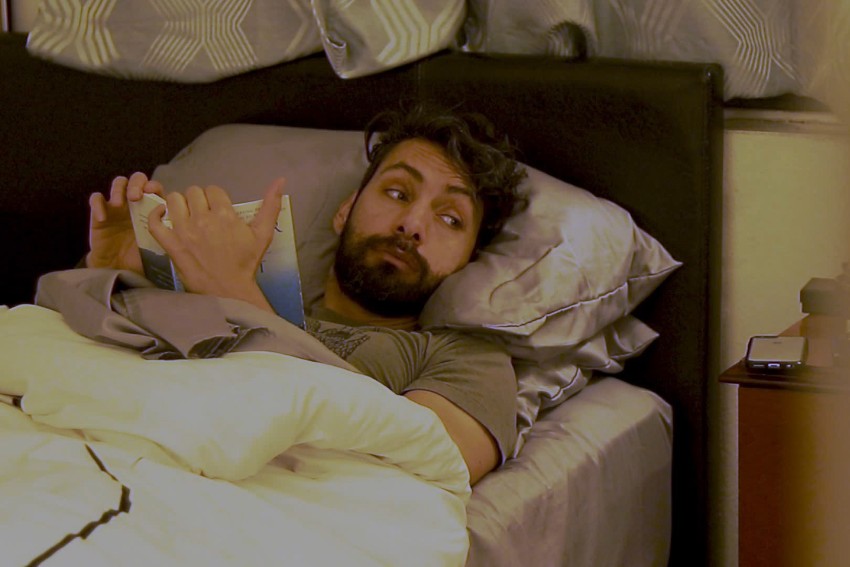
Introduce your crew?
Jeff Torres (JT): As far as crew I was the only person doing the whole thing, but I had some amazing actors lend me their voice talents. Ksenia Solo (Project Blue Book, Lost Girl), Jon Cahill (Mortal Kombat 11, Love, Death & Robots), Dado (A Red Orchid Theatre), and Sally Hughes (Code Black, Rosewood, Murder Manual).
What are your personal experiences putting on all these hats/responsibilities (simultaneously)? Tell us about story, writing, and production?
Jeff Torres (JT): It felt exciting. Truly. I hadn’t felt that way in a long time; where I was staring at something and thinking “I’ve been watching films all my life and acting professionally for over a decade. I know what I don’t like and I know what I do like.” So, I set out to make my vision a reality. I had shots in my head from before I even finished the script, they were etched in my brain and when you don’t have the budget or the locations other than your own place, you make it work. You make it all a reality somehow.
Having multiple hats like starring in something and directing it when there is literally no one on set but you is very interesting. At some point between takes I had to completely take my actor hat off, and direct myself. I physically, out loud, talked to myself how a director would talk to me, which obviously after the fact made me feel like a crazy person. At the time though, I had to stay in the pocket and finish the most emotional scene of the short. I learned. It was a crash course pop quiz in everything I had ever learned on sets and it made me a better actor and a more aware creator.
When you’re at the edit bay and you are putting together your vision, it is brutal to have a perfect take that doesn’t work because of something technical. There is a ton you can prevent and there are some things you cannot foresee, it’s what makes creating so difficult and beautiful because like in life, sometimes you have what you have and you absolutely have to make it work.
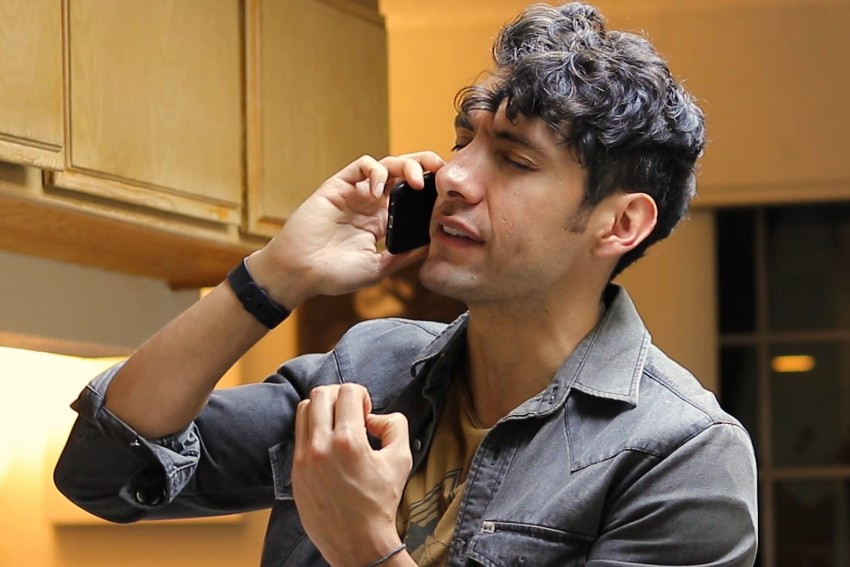
What is the source of the idea? How did the story develop from the idea? And how did the story evolve into a screenplay? Why do this story? Do you have a writing process?
JT: My friend Whitney Moore (THANK YOU FOR ASKING US TO CREATE DURING LOCKDOWN) had an idea to make a private pandemic film fest with a group of filmmaker/creator/actor friends. We had about a month or two to make a roughly 5-minute short based on a letter of the alphabet. My idea when I first heard about the premise of this project was to make something called When-Then, but I got the letter “O” so I made it once-then and shortened it to ONCE.
Once I have this, THEN I’ll do X. The idea came from there. Writing the script kind of came to me as I walked through my place and shot planned in my mind. My process is visually walking through the shots in my head and figuring out exactly what’s important in each scene and how it helps tell the story. You want to pack as many choices as you can but the script has to be economical with words, so it’s hard. Distilling ideas so they communicate story and character quickly.
Let’s talk pre-production: take us through a timeline of how you started and ended it?
JT: My pre-production was paperwork and writing the script. I set up loose shot lists, but a lot of it took place in my brain. I was waiting on my camera, so I had to set up shots without having the camera which was worrying me. Fortunately, I had a very clear vision and with advice from a few filmmaker friends I started planning shots and organizing my thoughts.
You shot the film in days. How long were your days?
JT: I shot it over a few days and the days were pretty packed as I had to depend on sunlight for a lot of shots and wait for night for other setups. I would shoot during the day, take a small break to eat and dump my memory card, and wait for the sun to fully set, then either keep going, or jump into the editing bay. When you’re the boss and the only human involved you can more or less make a work flow that makes sense to you, so I had freedom in that sense.
During the film production, what scene (that made the cut) was the hardest to shoot? And why?
JT: The hardest scene to shoot was a full-on conversation I was having on a phone call. I had to essentially time it out so I could react to lines in my head where I would later place the voiceover of the other actor. Since it was a monologue for a part of it, it was really hard in one take to get that and go into the conversation, remembering the timing of the lines being said to me and reacting to them.
What were the advantages and disadvantages in the way you worked?
JT: It took a lot of pressure off by being the only person on set. I didn’t feel like if I messed up a shot, I would be wasting anyone’s time or money. Wearing all the hats is tiring, but in that there is a relief. I’m very hard on myself and I don’t have to worry about being too hard on myself when I’m trying to get something just right. The disadvantage is that I was creating in a vacuum and filmmaking is a collaborative medium.
I greatly enjoyed having control at every turn because it was frictionless, but sometimes friction inspires innovation. Also, time. When you’re on set as an actor you are completely focused on that task, you get to take a break to clear your head between shots, but when you’re switching lenses and doing set decoration between takes it gets a little tricky jumping in and out of the performance and it’s extremely exhausting.
The film looks stunning. How did you get such a good look when shooting so fast?
JT: I did series of takes and allowed myself the time to just live in front of the camera so that later on I could capture honest moments and pick them out while editing. I would do a few takes in a setup each one from 1-5 minutes, depending on the scenario. It was on sticks and the face tracking on this camera was pretty great. Another huge advantage is the technology to download the Canon app on my phone and set up all of my shots, rack focus etc. while standing in and/or while doing a take. Technology truly makes it a lot easier for indie filmmakers. Being able to rack focus while on camera allowed me to get two of my favorite shots in the film.
What about independent filmmaking and the business do you still struggle with?
JT: This is my first go around in wearing all hats, so the thing I’ve struggled with is figuring out where to put the art once it’s made. I love creating but find it very troublesome to try and figure out what to do after that. I guess distribution so that people can enjoy your art.
Where do you think your strengths lie as a filmmaker?
JT: Honest and grounded storytelling. It’s the most important thing and the reason any of us watch film for the most part. If you have the best production ever but it’s missing its theme, stakes, or its WHY, then it can end up being pretty fluff. It’s like making a cake out of frosting.
How important is marketing? Talk about the festival tour? Do you think a project can make a dent without it nowadays?
JT: I haven’t done the festival tour, the word that kept flashing in my head since I completed this film was “share”. Share it. Share it with the world. Without marketing it’s really hard, without a big following you’re the tree in the middle of the forest making noise when you fall over but there’s no one there to hear it. A way to combat this is to create stuff that people can easily relate to, but yeah the more eyeballs, the more buzz, the easier it is to get your art out there.
Tell us about marketing activities or efforts on this project – and how it worked or didn’t work?
JT: I have had various interviews with different outlets talking about how I made this short film during quarantine thanks to Espada PR, which has been great. I think it helps to get audiences I would otherwise never interact with so every share helps. I just launched it a few days ago and it’s been received well, but we’ll see how it spreads over time. IGTV makes it easy for people to instantly share it to their profile which is great, it’s also up on YouTube which people can embed and share as well.
What do you hope audiences will get from the presentation of your film?
JT: I hope whoever is watching my short feels seen. It’s my first time directing and the idea that everything in front of that camera is a choice or as much as possible should be a choice, is mind blowing. From the responses I’ve been getting so far, a lot of those choices are landing which is all I can ask for. I want people to see themselves in this, and I want them to hopefully reflect. I want people watching to feel seen and less alone in a time when we all feel more isolated and alone than ever. And that little things add up, we don’t need to change our entire being overnight, or change the world in one grand gesture. Many hands make light work and many small actions make huge change.
What else have you got in the works?
JT: I’m currently working on a feature film version of a comedy noir pilot I created with Maxwell Kessler (The Last Man on Earth, Miss 2059). Also doing rewrites on a sports drama with Dadrian Flavors (The Gifted, Terminator: Dark Fate), with whom I produced a short film called Zippo. I’m involved with Company of Angels (www.companyofangels.org) doing online theatre/improv from time to time as well. Mostly, now that I’ve created something from scratch, there is a part of my brain that is constantly looking for a story to tell that speaks to me enough to make it like ONCE.
Tell us what you think of the Case Study for Once. What do you think of it? Let’s have your comments below and/or on Facebook. Or join me on Twitter.
Follow Jeff Torres on Social Media
Website
IMDb
LinkedIn
Twitter
Instagram
MORE STORIES FOR YOU

